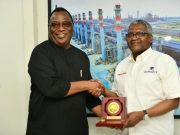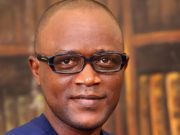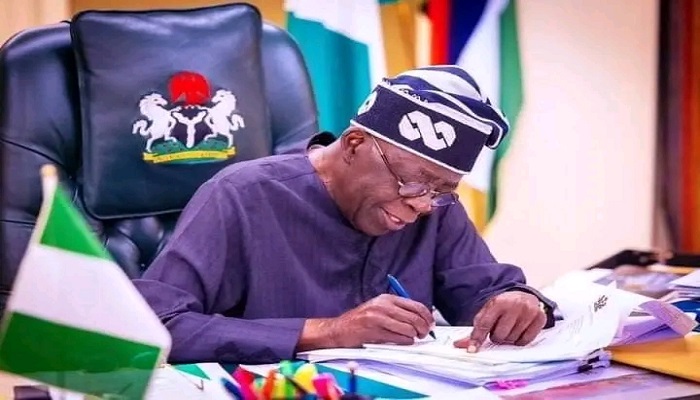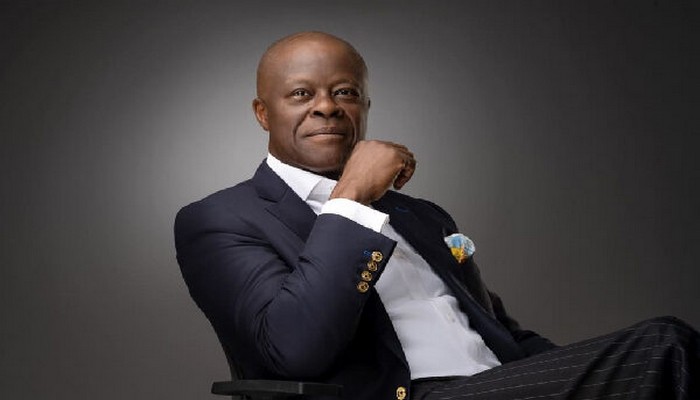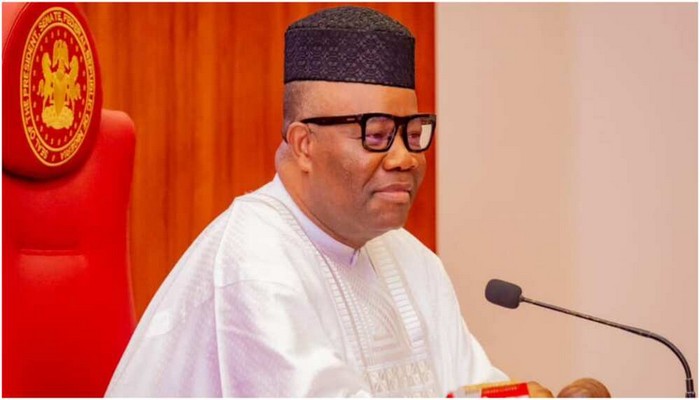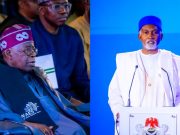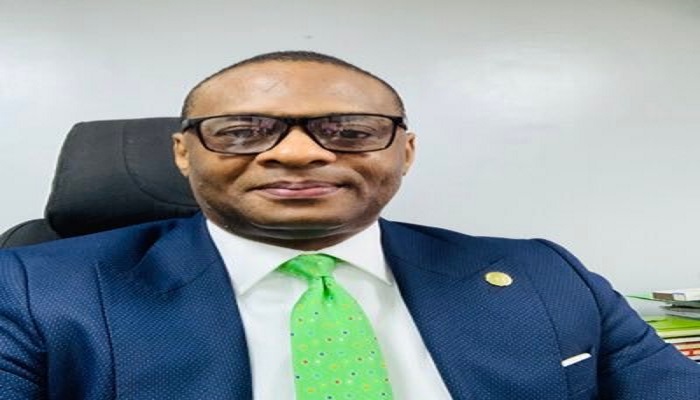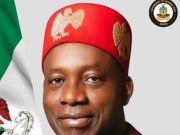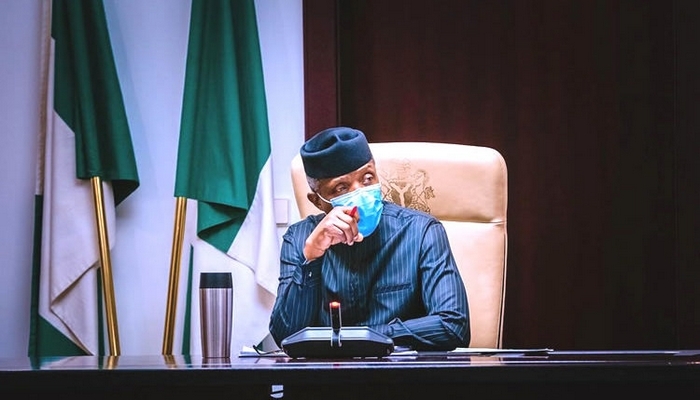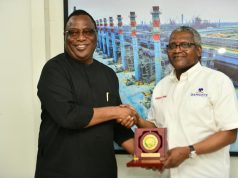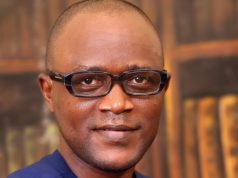Although Nigeria has been known globally as one of the leading producers of crude oil, the reputation of the country in the near future will be based on the imagination and creativity of Nigerians, according to Vice President Yemi Osinbajo, SAN.
Prof. Osinbajo stated this in a virtual message to the 2020 Art of Technology conference themed: “Smart data, Smarter Lagos”, today.
According to him “it is now evident that within the next decade Nigeria will cease to be a country whose main contribution to the world is crude oil. The resources that we have which are increasingly in high demand globally, are your capacity for innovation, your imagination, your creative content and your highly adaptive solutions. Your minds and workspaces are the refineries of the present and the future.
“We are finally embracing the true logic of true wealth, it is not being a primary producer, it is about value-added, it’s about maximally leveraging what you have, technology, and in particular data offers that incredible opportunity.”
The Vice President noted that “as we contend with the challenge of providing the means of self-actualization for nearly 200 million people and one of the world’s fastest-growing populations, it is clear that we must marshal the resourcefulness and ingenuity of our citizens in the quest for development and growth. Developmental governance in the 21st century is about continuously deploying innovative solutions against our most complex challenges.”
Speaking about the adoption of innovative solutions to address some complex issues bothering on governance and the economy, the Vice President said that “smart cities leverage data to make decisions across board. Economic data, consumption data, demographic data, population data, health data, are all important factors. Across all levels of government, we need to raise our capacity to harvest, track, and analyze data and ground policies in empirical evidence.”
He added that “Data is at the heart of developmental governance. Indeed, I would argue that governments need big data even more than corporations do. Whether we are discussing urban planning and public administration or economic planning and security strategy, it is impossible to attain mastery over these fields without a healthy regard for data.”
Making reference to the measures adopted by the Buhari administration in leveraging the use of data, Prof. Osinbajo said “…in December last year I inaugurated the steering committee for the GRID-3 Nigeria project. GRID-3 is the Geo-Referenced Infrastructure and Demographic Data for Development. It is a $50 million project in partnership with the Bill and Melinda Gates Foundation and the UK Foreign Development Office to generate, validate and use geospatial data on population, settlements, infrastructure and sub-national boundaries.”
“The project has led to the launch of the GRID-3 Nigeria portal, which provides access to accurate, complete, and geospatially referenced data relevant to a variety of sectors”, he added.
On the deployment of technology in addressing challenges associated with traffic control, general service delivery and environmental management, the Vice President said “technology can be a leveler, closing gaps in our society such as the rural–urban divide and bridging gaps in access to social services and broadening financial inclusion.”
Osinbajo noted that “this is why this administration is working to bridge the digital divide by increasing access to broadband with our National Broadband Plan which was launched this year. The plan is aimed at achieving 90% broadband penetration by 2023. The plan will give special attention to underserved areas when deploying telecom services.
“Opportunities crying out for smart solutions abound across various sectors of our society and economy.”
Citing examples of private companies leveraging technology to provide services in the health and related sectors, Prof. Osinbajo said “COVID-19 Pandemic has taught us important lessons in the necessity of applying technology-enabled solutions to strengthen our health security architecture.”
“Tools such as telemedicine can be deployed to deliver medical services to underserved and difficult to reach areas. We must also provide the right conditions for more private sector organizations like Temi Giwa’s Life Bank that have been working very hard in the distribution of medical supplies to expand their reach to other states and utilize technology like drones to deliver medical supplies faster and further, thereby saving lives beyond the main cities and in rural communities,” the Vice President added.
The Art of Technology conference started last year and is organized annually by both the Lagos State Government and the technology community with the purpose of facilitating multi-stakeholder discussions, exchanges and collaborations along the data value chain as an enabler of SMARTER LAGOS.



